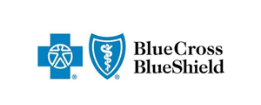Massachusetts Center for Addiction
Addiction Treatment and Drug and Alcohol Rehab in Easton, MA

If you or your loved one are seeking alcohol or drug addiction treatment in Easton, MA, it’s important to understand what options are available. At Massachusetts Center for Addiction, we know this is a time that is filled with many questions. We’re here to answer them and help you take the first important steps toward addiction recovery.
Receiving the Best Addiction Treatment Near Easton, MA
Each person who enters an addiction treatment program has a unique story and needs. You need an addiction treatment provider that can meet you where you are on your addiction recovery journey. The Substance Abuse and Mental Health Services Administration (SAMHSA) offers an online directory to help you search for the best addiction center near Easton, MA. SAMHSA also offers a 24-hour national helpline at 1-800-662-4357.
Massachusetts Center for Addiction is also available to answer your call 24 hours a day. If you’re unsure about what level of addiction treatment care is best for your situation, we can discuss your options for addiction treatment in Easton, MA.

Understanding the Four Main Levels of Drug and Alcohol Addiction Treatment
The Massachusetts Center for Addiction provides various levels of addiction treatment based on each individual’s needs. This can include partial hospitalization (PHP) and intensive outpatient programs (IOP). For those who need additional support, medication-assisted treatment (MAT) and support for co-occurring mental health issues are also available.
Drug and Alcohol Detox
Alcohol and drug detox is one of the most important steps of addiction recovery. It’s one that should be done in an addiction treatment or medical care facility. These facilities are equipped to handle the physical and mental health challenges of detox and withdrawal.
At the Massachusetts Center for Addiction, we cannot stress enough how important it is to not attempt drug or alcohol detox on your own. While we don’t offer detox or inpatient services at our facility, we can connect you with a facility that can help.
Inpatient Treatment
Inpatient treatment is what comes to mind for many people when they think of drug or alcohol rehab. Inpatient addiction treatment is a residential-style program where patients check in to a rehab facility to complete their treatment program. The duration of inpatient treatment varies depending on the individual but may extend anywhere from several days to a few weeks.
During inpatient treatment, you’ll be assessed by experienced addiction counselors, medical personnel, and mental health care providers. During your stay, you’ll attend addiction and mental health counseling, group therapy, and other types of therapy sessions.
Partial Hospitalization Programs in Easton, MA
Not everyone requires or is comfortable with inpatient treatment, but this doesn’t mean that traditional outpatient treatment is automatically the best option. Partial hospitalization programs (PHP) offer a necessary middle ground for those in need of addiction treatment.
PHP rehab is intensive, all-day addiction treatment centered on a personalized treatment plan. Partial hospitalization typically requires a commitment of six hours a day, several days a week.
Intensive Outpatient (IOP)
Outpatient addiction treatment near Easton, MA, is often preferred due to its flexibility while still offering much-needed support and counseling. However, traditional outpatient treatment doesn’t always offer enough structure and an elevated level of support that you may need. In this case, intensive outpatient rehab may be a good option.
IOP rehab programs offer individualized addiction treatment on a partial-day schedule. Individuals typically spend about four hours a day, several days a week, engaging in multiple types of addiction treatment and therapies.
Take The First Step Toward Recovery
If you or someone you know is dealing with addiction, please get in touch with us for a confidential phone call or request a call back with the form below. Starting this journey can be tough, but it’s a brave step towards a healthier life.
"*" indicates required fields
Additional Types of Addiction Treatment Near Easton, MA
In addition to the levels of care available, individualized treatment programs are available near Easton, MA. Massachusetts Center for Addiction offers treatment options that include medication-assisted treatment (MAT), which helps ease withdrawal symptoms, along with dual diagnosis, sober living, and aftercare planning. These programs are tailored to the individual to support a holistic addiction recovery journey.
Medication-Assisted Treatment Options (MAT) in Easton, MA
When used alongside proven tools like addiction counseling, cognitive behavioral therapy, and mental health therapy, certain medications can be used to increase the potential of addiction recovery success significantly. Medication-assisted treatment (MAT) can be used for both alcohol and drug addiction and has been shown to be particularly effective for opioid addiction.
Massachusetts Center for Addiction offers a medication-assisted treatment program near Easton, MA. After a thorough assessment, our experienced clinical staff will determine if you meet the qualifications for MAT and suggest FDA-approved medications that suit your needs.
Dual Diagnosis Treatment for Co-Occurring Mental Health Conditions
Many individuals who are struggling with addiction also have co-occurring mental health issues. Addressing mental health during addiction treatment offers the best outcomes for long-term addiction recovery. Dual diagnosis is an approach to addiction recovery that includes a focus on mental health care.
Examples of co-occurring mental health issues that can be addressed with dual diagnosis treatment include depression, anxiety, ADHD, OCD, and bipolar disorder, among others. Dual diagnosis treatment near Easton, MA, is a holistic approach to addiction recovery that the Massachusetts Center for Addiction offers.
Sober Living in Easton, MA
There are times when your home environment isn’t suitable for someone going through addiction treatment. It might be that the home environment includes people who either enable addiction or attempt to sabotage recovery for their own purposes. Or it might be that an individual doesn’t have the necessary level of support at home. Whatever the circumstance, sober living programs near Easton, MA, are a supportive safety net.
Sober living is a transitional residential program. Individuals going through addiction treatment can temporarily reside in a structured and supportive environment as they navigate a safe and healthy transition into independent living.
Family Programs for Healing
Addiction rarely affects only the person going through it. Addiction has a grip that is far-reaching and often affects personal relationships. Healing the damage done to these relationships by substance abuse is an important component of addiction recovery.
Family programs address the trauma, hurt, and distrust caused by addiction. When the family unit is offered the opportunity to heal, rebuild, and establish boundaries, this increases the chances of long-term sobriety for the individual going through addiction treatment.
Where To Begin When You Need Drug and Alcohol Rehab Near Easton, MA
If you need alcohol or drug rehab in Easton, MA, but aren’t sure where to turn, there are resources that will help you find the best options near you. The SAMHSA directory is a good starting point and offers a more reliable list of options than searching on your own through Google or other means.
Finding the best drug or alcohol rehab center involves understanding what your needs are and what type of treatment you need. Then consider if the addiction treatment center of your choice checks off all the boxes while delivering quality care. The Massachusetts Center for Addiction is here to help if you’re unsure and have questions.
Does Insurance Cover Addiction Treatment?
Finances shouldn’t be something that stands in the way of receiving the addiction treatment you need. According to the Affordable Care Act, insurance providers must include addiction treatment coverage in their insurance packages.
The amount of coverage offered depends on the individual plan and whether you choose an in-network or out-of-network insurance provider.
Choosing In-Network or Out-of-Network Addiction Treatment Near Easton, MA
An in-network provider has an agreement with your insurance company to negotiate treatment prices. When you choose an in-network addiction treatment center, your out-of-pocket costs are generally lower. Massachusetts Center for Addiction has in-network agreements with Aetna, Cigna, and Tricare.
You can choose to work with the addiction treatment provider of your choice, but if they are out-of-network, your out-of-pocket costs will likely be higher.
Knowing Your Options for Addiction Treatment Payment
The best way to understand the level of coverage you have for addiction treatment and which providers work with your insurance is to contact your insurance provider directly to inquire about benefits. Massachusetts Center for Addiction works with most insurance providers.
If you don’t have health insurance to help cover the costs, other options may be available to you. Loans, grants, and community resources may be available to help.
How To Help a Loved One With Drug or Alcohol Addiction
Finding help for a loved one’s addiction may be one of the most difficult things you’ll ever do. Recognizing that your loved one needs help is an important first step. You might be in a challenging position where you feel helpless, especially if your loved one resists getting help.
Each situation is different, making it important to contact the SAMHSA national helpline or an addiction treatment center near Easton, MA, that can help answer your questions. You can call the Massachusetts Center for Addiction 24 hours a day, and we’ll answer your questions and help you understand the next steps.
Massachusetts Center for Addiction Is Only a Call Away
If you or your loved one is in need of addiction treatment, there is no reason to wait to get the answers and treatment you need. The best time to take the next step toward addiction recovery in Easton, MA, is now. Contact the Massachusetts Center for Addiction today at 844-486-0671. We’re available to take your call 24 hours a day.













